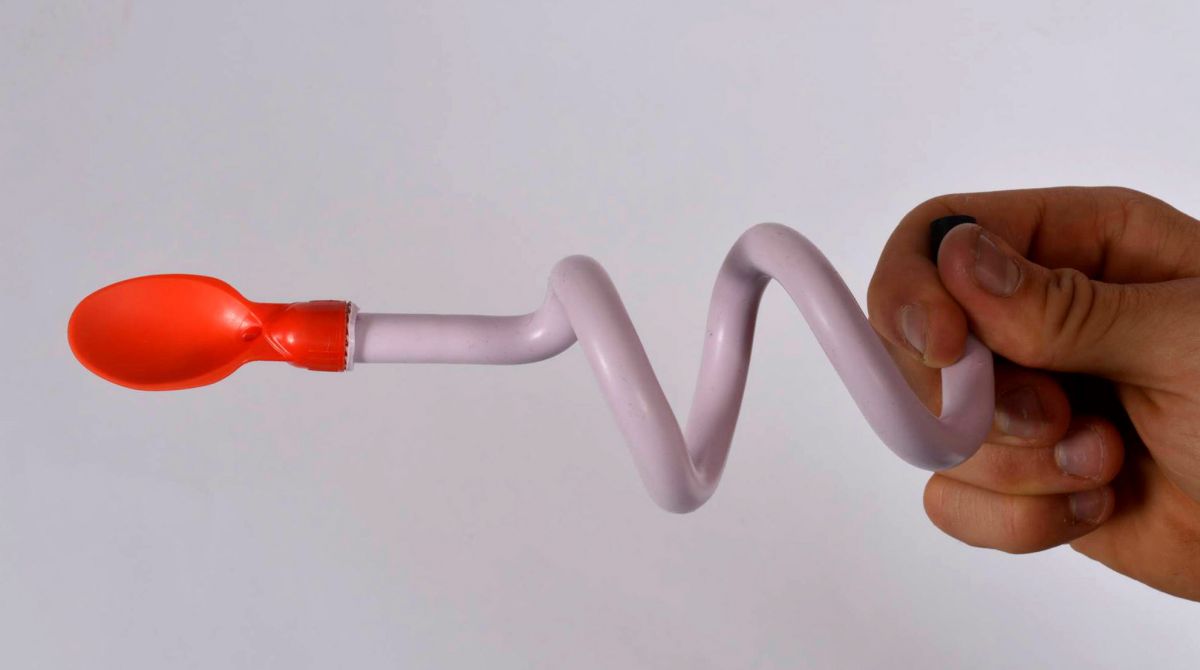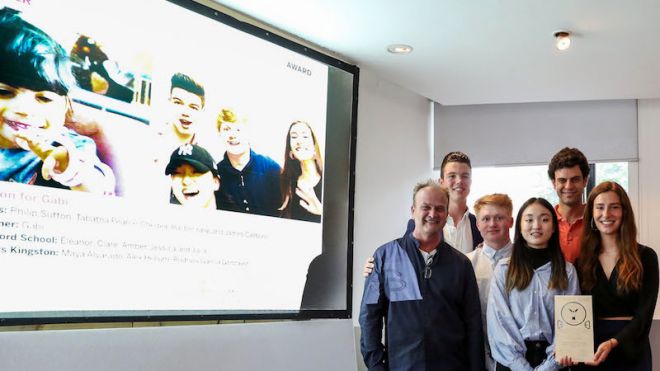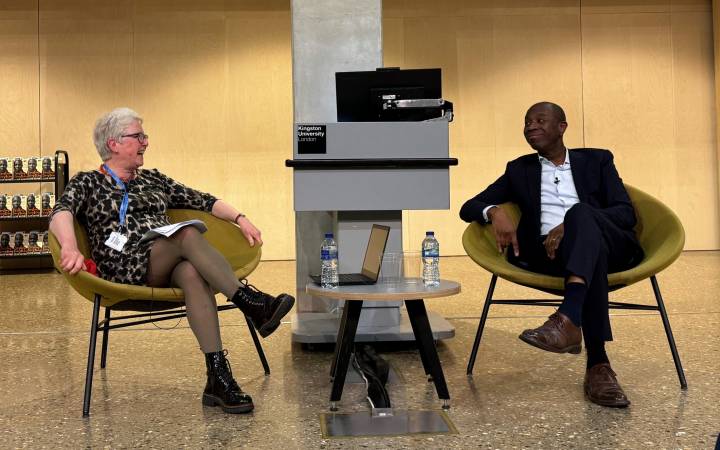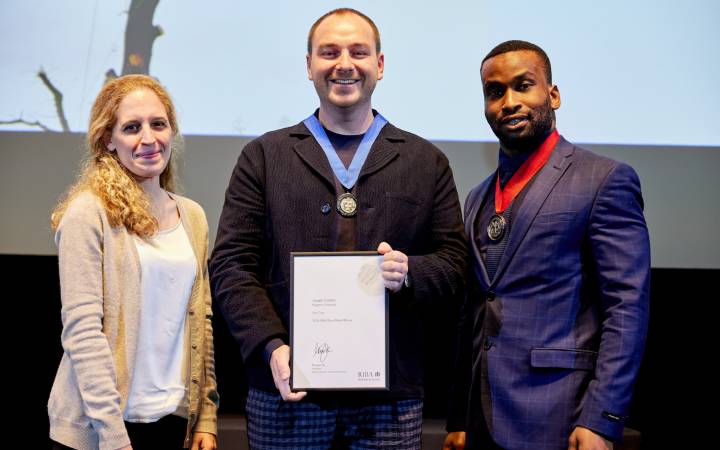Kingston University students win prestigious Helen Hamlyn Centre for Design RCA award for flexible spoon Fixperts project
Posted Friday 1 September 2017
 The spoon created by Kingston University students curls around the arm using a flexible wire coated silicon handle
The spoon created by Kingston University students curls around the arm using a flexible wire coated silicon handle
A group of inventive Kingston University product and furniture design students have won the Royal College of Art's prestigious Helen Hamlyn Centre for Design Fixperts Award for a bespoke silicon spoon that has changed the life of Gabi, a young girl with complex physical disabilities, enabling her to eat without assistance for the first time.
The team's winning entry features a flexible, soft and light handle that spirals around Gabi's arm, creating a solid foundation for the screw-in spoon.
Founded by Kingston University Professor Daniel Charny and designer James Carrigan, Fixperts is a learning and engagement programme which challenges students to create ingenious solutions to everyday problems for others. Each project is documented as part of the process and posted on the Fixperts' website, sharing the fix with designers from one of 30 Universities in 21 countries.
The Helen Hamlyn Centre for Design Fixperts Award highlights the best Fixpert project from around the world, showcasing design that improves people's lives across a range of social needs. First year Kingston University Product and Furniture Design BA(Hons) students Philip Sutton, Tabatha Pearce-Chedier, Rachel Yang and James Caldwell made up the team awarded the coveted prize at a ceremony held at London's Royal College of Art.
Given the Fixpert project as part of their course work, the group collaborated with a local primary school to come up with a solution to help five year old Gabi - born with a condition which means she has reduced use of her hands and is unable to feed herself independently. The group embraced the challenge and after collaboration with Gabi's mum, the occupational therapist, the speech and language therapist and observation of Gabi headed straight back to the design studios to brainstorm their ideas.
Tabatha Pearce-Chedier explained how the group went through a series of prototypes before settling on a successful ‘fix'. "It was a bit overwhelming at first. We had to produce something comfortable and practical that Gabi would want to use," said the 21 year old from Bristol. "We looked into fabric solutions utilising Velcro but they didn't allow the spoon to sit at the required angle. We started to think about using wire, which led to the silicon solution."
They presented their final design following a week of visits with Gabi, going back and forth to the studio creating new prototypes for testing. Tabatha explained it was all worth it when they presented the finished product to Gabi. "At first she was unsure about it because it was something she'd never seen before," she said. "When she first put the spoon in her mouth it was such a beautiful moment. She was really happy, laughing and smiling - you could see that she really wanted to be able to feed herself."
Product and Furniture Design BA(Hons) senior lecturer and the group's tutor, Rodrigo Garcia Gonzalez, said the project was a great opportunity for the students to challenge themselves. "We treat the students as designers and expect them to deliver designs from their first day on the course," he said. "They learn a lot about research, prototyping, communications, how to tell a story, dealing with a client, how to find a solution that works - it involves a lot of critical knowledge and has been very successful so far. It's important that the students see Fixperts projects go much further than an academic mark, it has much wider implications," he said.
 The award-winning team and their tutors with the Helen Hamlyn Centre for Design RCA award.The success comes as Kingston University's Faculty of Art, Design and Architecture prepares to return to its origins and will be known as Kingston School of Art from September 2017. The new name reflects the faculty's legacy while looking to the future in an era when original thinkers are highly valued in the rapidly growing creative and cultural industries.
The award-winning team and their tutors with the Helen Hamlyn Centre for Design RCA award.The success comes as Kingston University's Faculty of Art, Design and Architecture prepares to return to its origins and will be known as Kingston School of Art from September 2017. The new name reflects the faculty's legacy while looking to the future in an era when original thinkers are highly valued in the rapidly growing creative and cultural industries.
The Helen Hamlyn Centre for Design jury chose from a shortlist of inspiring films from undergraduates across nine countries. They praised the team's close collaboration with Gabi and the school team, along with the intelligent design process and compelling communications. "Inclusive design in its most delightful and powerful form. An innovative solution that empowered Gabi and film that impressed the judges. It showed the effect that design can have on people's lives," said Rama Gheerawo, Director of the Helen Hamlyn Centre for Design.
- Find out more about studying Product and Furniture Design BA(Hons) at Kingston University.
Contact us
General enquiries:
Journalists only:
- Communications team
Tel: +44 (0)20 8417 3034
Email us



